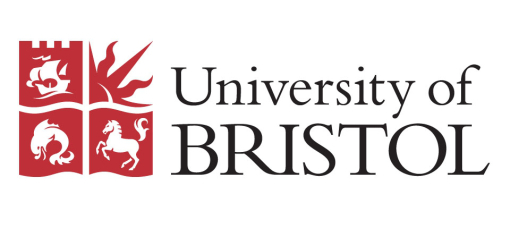2,277 Total views, 5 Views today
Middle East Gender Forum, 7-8 April 2017, Iraqi Kurdistan Region, University of Sulaimani


Recent wars, conflicts and human rights abuses have forced millions of people to flee their homes and move within or across boundaries. According to the United Nations Population Fund, the world is currently facing the worst refugee and forced displacement crisis since the Second World War. In the last decade, the Middle East has shown important geopolitical changes that has repercussion not only on people in the region, but on Europe and the Western world in general. Following the Iraq and Syria crisis highlighted by the Syrian civil war and the emergence of the ISIL, in Syria alone, millions of people have left their homes, become internally displaced or moved to neighbouring countries. While some of the displaced people are desperately trying to cross the Mediterranean Sea with disastrous consequences, many have been put in camps in Turkey, Iraqi Kurdistan, Jordan and Lebanon. Iraqi Kurdistan, despite its small territory, has received and absorbed a disproportionate number of refugees and internally displaced persons (IDP); KRG officials talk about 2 million refugees and IDPs currently living in refugee camps or non-camps settlements in the three governorates of Duhok, Erbil and Sulaimani.
The process of displacement have affected people in many ways; in addition to losing their homes, the displacement process has caused the breakdown of peoples’ social structures, shifted gender roles as well as the representation of masculinity with great impact on gender relations. According to UN agencies and international aid providers the prevalence of gender-based violence has sharply increased during displacement and emergency crisis [UNFPA]. In the refugee camps, the new unfamiliar living environments and requirements have challenged the traditional gender relations, old ties and social norms making women vulnerable to violence and discrimination. In Iraqi Kurdistan Region women and girls during their displacement and in- camps settlements have experienced many forms of gender-based violence, including domestic violence, honour-based violence along with different forms of sexual violence. The displaced populations in the region are not a homogenous group; they include different religious and ethnic groups, including Kurdish Yezidis, Christians, Turkmens, and Sunni Arabs. With their different historical background and the process of their displacement, each of these communities has been subjected to different experiences with great impact on gender relations. Following the ISIL attack on the Sinjar region, August 2014, thousands of Yezidi women have been kidnapped by jihadists and subjected to sexual and gender-based violence; those who fled their jailors or ransomed off by local authorities, have confirmed systematic rape, forced prostitution, child and forced marriage and sex slavery. The challenges, vulnerabilities and different forms of violence facing displaced women, have implications for policy makers within host countries as well as inside international aid and official development organisations. What is more, vulnerable and frustrated migrant and displaced men and women in different European countries have been affected by the propagandas of the ISIL and travelled thousands of miles to join the ‘terrorist group’.
The first Middle East Gender Forum (MEGF) will address different shifted boundaries within displaced and migrant communities, focusing on gender relations, new challenges facing women as well as the position and representation of men during the displacement and settlement processes. What are women’s experiences of gender-based violence and the consequences resulted? How do migration, the breakdown of social structures and old ties impact young men’s lives and their perception of identity and masculinity? Preliminary researches by the CGVR demonstrate that young men have found religion as the best way to get respected and to reconstructtheir“shatteredidentity”.1 Howcouldmen’sfrustration,theirpotentialandstrategic interests be addressed before they are deviated and turned into violence? And finally, what are the best responses different national and international agents should provide to help migrant and displaced women and men, address their frustration, easing their pain and their suffering that could lead to reducing violence. This first Middle East Gender Forum will create a platform for debate and deep analysis, bringing together a diverse group of scholars, activists, civil society representatives and policy makers within host countries as well as inside international aid and official development organisations. During two days of reflection, debate and exchange of ideas and experiences, the MEGF will look at the intersectional causes of displacement, gendered violence and extremism with the aim to learn, understand and gain an insight into the complexity of the displacement process and politics of belonging and social as well as political inequalities.
We invite submissions and expression of interest in participation from scholars, civil society representatives, women’s rights activists as well as international policy makers. The Forum focuses on specific themes, including:
Gender-based violence, conflict and displacement
Gender relations, boundaries and politics of belonging
Gender narratives within displaced communities and men’s positioning
Justice and empowerment mechanisms
Transnational terrorism
The Forum is organised by the Centre for Gender and Violence Research, University of Bristol; the Gender and Violence Studies Centre, University of Sulaimani and the Gelawêj Cultural Centre, Iraqi Kurdistan. It will be convened on 7-8 April 2017 in Iraqi Kurdistan Region, the University of Sulaimani. Accommodation and subsistence will be provided by the organisers. A modest travel assistance will be available for those who cannot obtain funds within their organisation/academic institutions.
Abstracts of no more than 500 words should be submitted before 15 October 2016 to Dr Nazand Begikhani and Dr Emma Williamson, University of Bristol.
Email: nazand.begikhani@bristol.ac.uk

